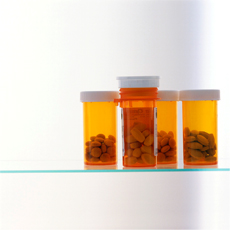 Is the increasing cost of prescription drugs bankrupting the health care system?
Is the increasing cost of prescription drugs bankrupting the health care system?
In this Research Paper, authors Julia Witt and Brian Ferguson examine the question and conclude that better access to pharmaceuticals actually saves money on hospital and emergency department budgets.
“The literature suggests that the better the coverage for pharmaceuticals, the more likely that drugs will be used properly, which then realizes savings in other health care sectors,” says Brian Ferguson, AIMS Fellow in Health Care Economics and an associate professor of Economics at the University of Guelph.
Witt says that to truly realize those savings, there has to be a change in the so-called silo budgeting, so that costs in one sector may be offset against savings in another.
“The benefits of better drug coverage are many-fold, among them the opportunity for more-than-offsetting decreases in hospital and emergency department costs through improvement in health and better disease management, improved compliance because people are better able to afford their medications and new and better drugs to replace old ones,’ says Witt, who has a doctorate in economics from the University of Guelph.
In “The Good News: Pharmaceuticals and the Cost of Health Care”, the authors point to evidence of how better drug care is lowering the cost of health care. The Journal of Clinical Psychiatry tracked the cost of antidepressants and showed that in one year the cost per patient of the drug rose from $385 to $1319, but hospital costs per in-patient stay fell from $2738 to $1217. So the actual direct treatment cost per patient fell from $4072 to $3309.
“This paper addresses the way in which increasing the coverage of drugs by the public health system can actually save the system money by treating diseases early, and thus preventing the serious, and expensive, consequences of advanced disease,” says Witt.
Ferguson explains that what is needed is a more holistic approach to health care, one that combines budgets to optimize health rather than cost containment within the budgets of individual areas of the health care system.
“If drug and hospital budgets remain strictly separated, new drugs that increase pharmaceutical costs but reduce hospital costs simply impose costs on the drug budget, while yielding benefits for the hospital budget,” says Ferguson. “Unless some of the savings on the hospital side can be transferred over to the drug budget, a strict limit on drug spending could thwart efforts to cut costs overall.”
Click here to read the complete paper.
This paper is also available, en francais.
This research was made possible through the generous support of the Lotte and John Hecht Memorial Foundation.

